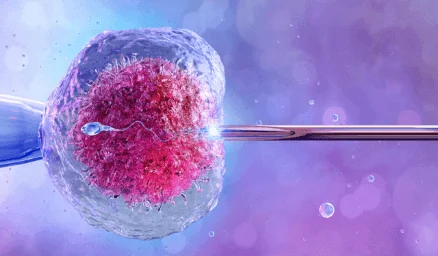My 1st IVF Cycle (last step of treatment) has Failed, Now What are the options for me for further Treatment?

Well, We have an idea of what has brought you to this page.
Typically in fertility treatment, IVF is the last treatment option recommended to infertile couples, so it is obvious that couples will feel devastated thinking that they will never become parents if it fails. However, let me tell you that there are a plethora of ways for you to conceive even after all this failure.
It seems like you are on a journey to ferret out the answers to your dilemmas, and we are right here to help you through it. Yes! We understand that you’ve undergone the emotional rollercoaster of failed IVF cycles and you might be feeling lost about further steps. But don’t dwell on it as there are still other options available for you to discover!
Let’s fight with this, the road to parenthood can be lumpy, and it’s easy to feel like giving up. However, you must not forget that every intended parent’s journey is exceptional and there is no one-fit solution to all. But, the comforting prospect is that there are a plethora of alternative options to go for after having a failed IVF cycle.
IVF Failed even though having a good quality embryo and normal uterine cavities….
Dr. Ripal Madnani says that, “Before moving to another round of IVF, it’s crucial to determine the probable cause of the previous IVF failure. Diagnostic tests should be performed to identify any possible issues, though embryo and uterus appear normal. The reasons for IVF failure can vary, and identifying them is important for preparing an effective treatment plan.” Further added that, “ the reasons could be,
- Genetic abnormalities in Embryo
- Poor Quality of eggs
- Poor Quality of sperms
- Abnormalities or infections in uterine cavities
- Malformations like a septate uterus
- Immunological causes
- Endometriosis
- Low ovarian reserve
- Other hormonal imbalances like thyroid antibodies,
- Autoimmune disease like antinuclear antibodies.
Apart from that! If you had IVF without Pre-genetic Testing (PGT)
If you had an IVF cycle without preimplantation genetic testing, then you are advised to go for an IVF cycle with genetic testing in the next attempt and transfer a genetically normal embryo into the uterus because the chromosomal aneuploidy is the most common reason of failed IVF cycle.
Preimplantation genetic testing (PGT) is a procedure that is done on embryos after fertilization to detect genetic abnormalities before they are placed into the uterus. PGT can help determine the embryos that are more likely to implant successfully and decreases the risk of certain genetic disorders that may get passed on to the child.
What if IVF even with Preimplantation Genetic Testing Failed?
If the IVF is done with PGT, and still it has failed then, it is crucial to have a look into the causes of failure before repeating another IVF cycle, such as poor quality eggs or sperm, uterine lining/cavity abnormalities, immunological issues, lifestyle factors etc. You will certainly have to go through the below assessments.
Uterine Cavity Assessment:
Hysteroscopy is often used to detect any peculiarities in the uterine cavity. This permits the doctor to look inside the uterus and identify any abnormalities such as infections, fibroids, polyps, scar tissue, or uterine septum. If any abnormalities are detected, they can be removed or corrected to improve the odds of a successful IVF cycle.
Immunological Assessment:
It is essential to assess if any immunological causes contributed to IVF failure. If yes! then, Immunomodulation is performed to treat this disorder. It is the process of modifying or managing the response of the immune system to a specific antigen or disease. It can involve using various drugs, or therapies to either enhance or suppress the activities of the immune system, relying on the particular condition being treated.
Nutritional assessment:
You will also have to go for a nutritional assessment. Nutritional assessment is a test for evaluating a person’s nutritional status by determining their dietary intake, physical examination, and lab tests. It will help to detect any nutritional deficiencies or imbalances that may be hindering their IVF treatment.
Thyroid Assessment:
Thyroid assessment for IVF failure involves evaluating the thyroid function of a woma which includes assessing levels of thyroid hormones, thyroid-stimulating hormone (TSH), and thyroid antibodies. This assessment is important because thyroid dysfunction has been associated with reduced fertility and pregnancy success rates in women who had IVF.
Poor fertilized embryos on day 1 in laboratory:
if embryos are not fertilized the expected way, then it is necessary to test for Sperm DNA fragmentation. If DNA fragmentation is >30% then treatment of male partner is required in the form of lifestyle modification and/or microTESE or TESA to improve fertilization rate.
Moreover, our fertility specialist in Abu Dhabi will prescribe you other tests if required. In Nutshell, if the exact cause of IVF failure is found, then you will be given an exact treatment before starting another IVF cycle. Or, if no cause comes to light then our IVF Doctor in Abu Dhabi advises you to repeat the IVF cycle with some modification of treatment protocol, and use of different types of hormones . Because, with every IVF attempt, the chances of conception increases.
